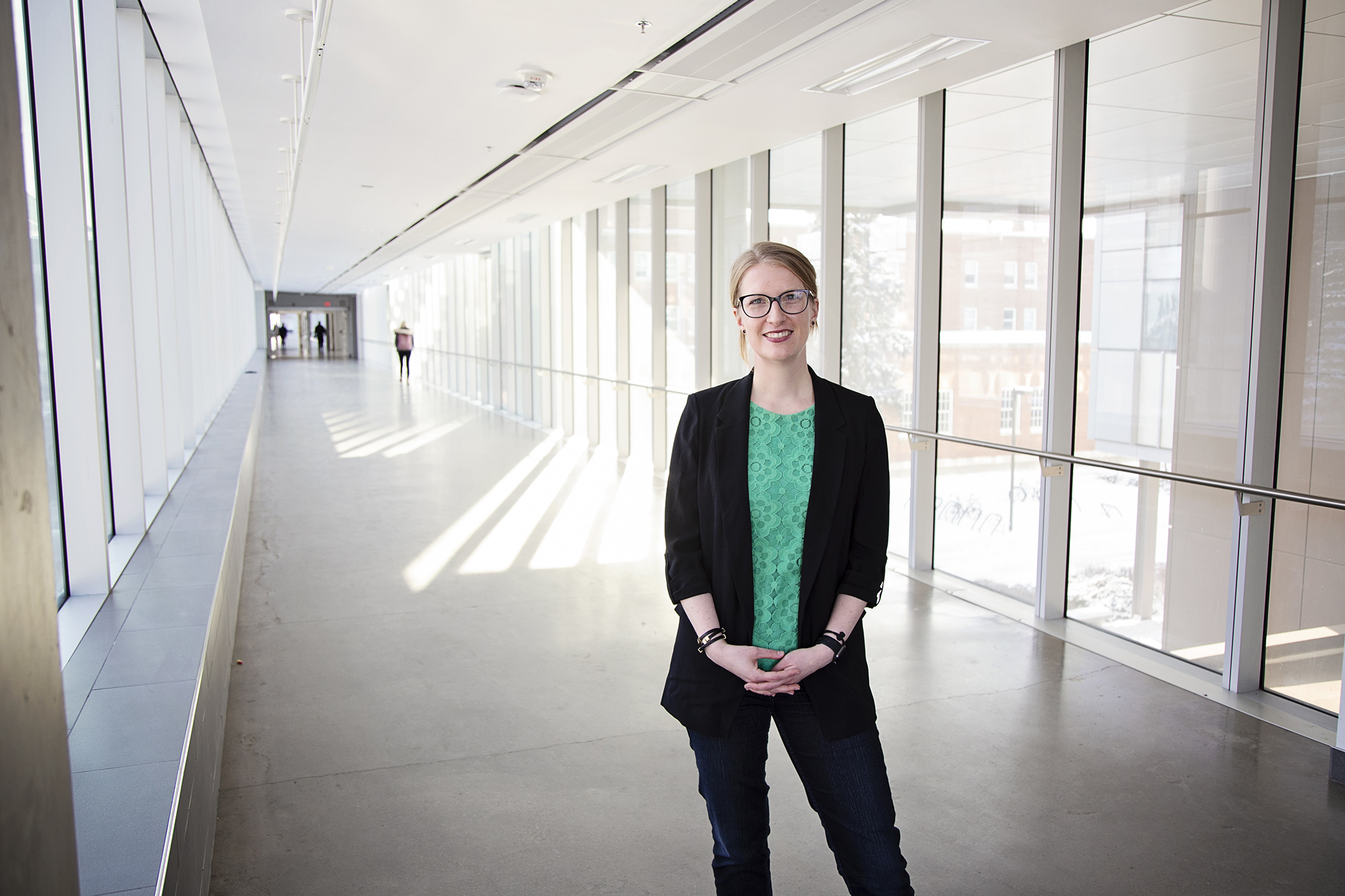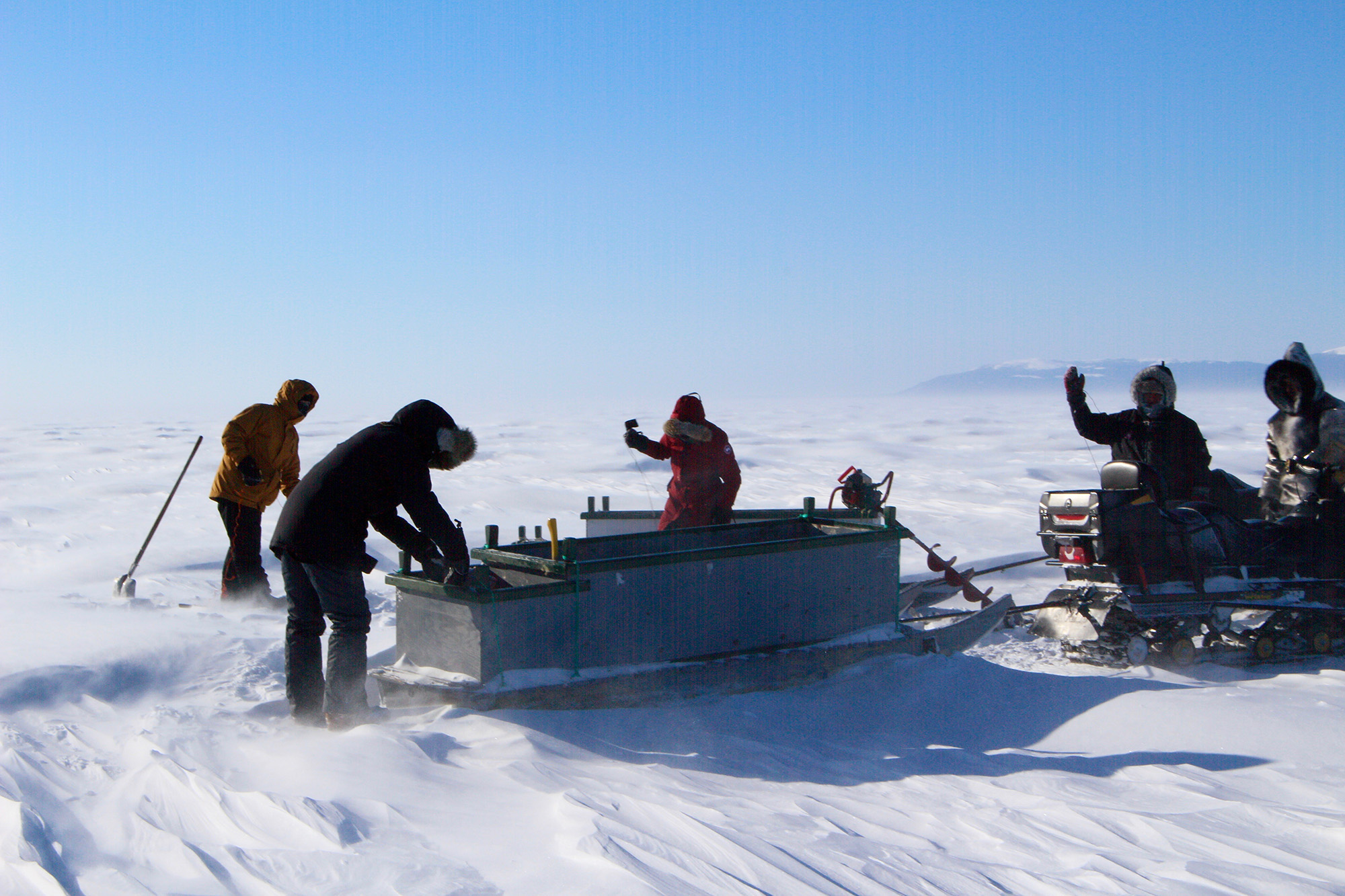Weathering the storm: Exploring climate change as a health issue

Most discussions about climate change focus on the impacts of severe weather on the environment, wildlife, global economy, and infrastructure. While these aspects of climate change are important and need to be incorporated into mitigation strategies worldwide, one dimension has – until recently – often been missing from the conversation: the impact of climate change on our health.
"Climate change impacts many different facets of our health, from the air we breathe to the water we drink to the food we eat," says Dr. Sherilee Harper, an associate professor and climate change researcher at the University of Alberta. "Frankly, it affects just about everything we do."
Unfortunately, climate-related health impacts are abundant. Research shows that increased levels of air pollution can lead to respiratory and cardiovascular health challenges; prolonged droughts can limit water availability and quality; and extreme temperatures can affect the growth of agriculture and crops, resulting in food insecurity. Not to mention the illness, injury and even death that can come from severe weather events like heat waves, forest fires, hurricanes, and flooding.
As the Canada Research Chair in Climate Change and Health and lead investigator of the Climate Change and Global Health Research Group, Dr. Harper and her team explore the relationship between climate and health in countries around the world – and seek to find solutions for how we can mitigate climate impacts.
“We need to better understand what climate-related health impacts are,” she explains, “but also understand how they are affecting different communities, what their experiences are, and, importantly, how we can respond.”
Understanding the role of social factors on health

Through numerous community-led, participatory action research projects, Dr. Harper works in close partnership with Indigenous Peoples in Arctic Canada, the Ugandan Impenetrable Forest, and the Peruvian Amazon to find answers and solutions.
Her research has already made one thing crystal clear: even though climate change touches all of us, its impacts are more prevalent and damaging among certain populations. "We know that there are gaps in our health care system and gaps in our social systems, which means some people will be more or less likely to be impacted by climate change or feel its effects in a very real way," she explains.
There are a number of factors that intersect to determine the extent to which a person – and their health – will be impacted by climate change, as well as how vulnerable or resilient they may be in responding to these impacts, Dr. Harper explains. Where a person lives and how exposed they are to a particular climate-related event, for example, will have a significant impact on how they experience climate change.
“Arctic Canada is experiencing some of the fastest warming in the world right now,” she says. “So, people living in Northern Canada are much more likely to face climate-related health challenges than those living in southern parts of the country. For example, warming temperatures, thawing permafrost, and melting sea ice are contributing to waterborne diseases, increased food insecurity, and diminishing transportation trails that facilitate access to water and food for people living in Canada’s North.”
But geography isn't the only social factor that contributes to how different communities experience climate change. Dr. Harper also points out that lower income households are often less likely to have access to resources to help them cope with the effects of climate change, such as air conditioning at home during a heat wave or rising costs of nutritious food due to droughts. This ultimately makes these communities more vulnerable to climate impacts.
"This shows us that climate research is more than just studying the environment and changing weather patterns," Dr. Harper points out. "It's also about understanding the very real impacts those changes have on our society – our communities, our economy, our infrastructure, and, yes, our health – and how we can best prepare for and respond to those impacts to ensure the best possible outcome for everyone."
Planning for a healthier future

Despite increasing research showing the implications of climate change on our health, Dr. Harper says hope is not lost.
"It gives me hope to see that every year, there is more interest and conversations about climate change and its impacts on our health," Dr. Harper says. "Climate change is a health issue, and I think Canadians and people around the world are really starting to understand that and demand action be taken to address it."
As a representative of Canada on the United Nations Intergovernmental Panel on Climate Change (IPCC) – an advisory group that assesses the science on the impacts of climate change across many sectors, including health – Dr. Harper is helping advise on what that action should look like. Currently, she is a lead author on several IPCC research reports, which are written collaboratively by interdisciplinary researchers across borders and used by governments to establish evidence-based solutions to address climate change. In fact, these reports underpin major international climate change negotiations, including the 26th United Nations Climate Change Conference, which was held in Glasgow, Scotland in the fall of 2021.
"Fighting climate change requires a collective global effort based on science-backed policies and decision making," says Dr. Harper. "It's particularly rewarding to know that our research is helping inform these policies at an international level and, by extension, having a direct impact on the health and wellbeing of Canadians and people around the world."
- Date modified: